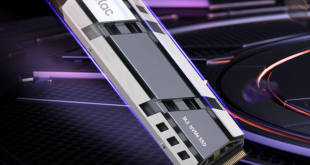We measured the power consumption with the system resting at the Windows 7 desktop, representing idle values.
The power consumption of our entire test system is measured at the wall while loading only the CPU using Prime95's Small FFTs setting. The rest of the system's components were operating in their idle states, hence the increased power consumption values (in comparison to the idle figures) are largely related to the load on the CPU and motherboard power delivery components.
With the Asus X79-Deluxe motherboard applying a CPU VCore of 1.248V under load, the 4960X system draws a maximum of 212W. That's pretty impressive for a system featuring a high-performance hexacore processor that operates under forced-turbo conditions.
The 3930K system draws an extra 40W under load, which is around 19% more than the identical 4960X-based machine consumes. With a constant-load system usage of 25 hours per week, the 4960X system will use about £7.80 less electricity than the 3930K-based machine over the course of a year (based on a £0.15 per kWh electricity price).
When both hexacore chips are overclocked (using the same voltage, but different LLC settings), the 4960X demands a substantially lower amount of energy – 145W (33%) less, to be precise. With the same 25 hours per week constant-load system usage, that amounts to an electricity saving of just over £28 per year for the IVB-E system, in comparison to the SB-E machine.
Yes, the 3930K-based system is clocked higher, but that doesn't translate into better performance. While lowered power consumption is nice, people interested in buying an Intel Extreme Edition chip (or a 3930K-level part, for that matter) are unlikely to show much concern over £28 extra electricity per year (in the above usage scenarios).
What will be of more importance to enthusiasts is the lower CPU temperature that decreased power consumption tends to imply. Let's check the CPU temperatures.
 KitGuru KitGuru.net – Tech News | Hardware News | Hardware Reviews | IOS | Mobile | Gaming | Graphics Cards
KitGuru KitGuru.net – Tech News | Hardware News | Hardware Reviews | IOS | Mobile | Gaming | Graphics Cards




Epic stuff. skimmed over it before work this morning, bookmarked for a good read later today. Next on my list to place my 3930k.
Well at least it seems to overclock a bit better than Haswell. Good info on the core to core tests. 4770k is the most efficient processor on a core basis.
4960x looks like a solid processor, but I wish AMD could offer more of a challenge then Intel would be forced to drop their prices a little. it is very very expensive. Still, for the target audience of people who render etc looks like a great buy.
AMD , where are you!???
Great review, haven’t read all of it yet, but picked up some interesting info. Way out of my price range. im saving for a 4570k and a new mobo. always good reading these ultra high end reviews, just to dream !
wow a lot of work in this one. I do agree with eran earlier in the review. Intel are kick ass, but the prices are hard to swallow. 4770k for a bang to buck is much better, but same with the last generation. these 6 core CPU’s cost a small fortune.
Good work Mr Hill.
best review of this I have read today. I love INTEL!
Ah the perfect partner. Blows the heck out of the FX 9590.
Did ASUS provide a release date for the X79-Deluxe?
LqM, the Asus board will be hitting retailers in the coming days.
Asus would release more boards or just the deluxe?
I wont get the 4770k. 4820 is much better IMO
what are the boot times and boot options on the “Asus X79-Deluxe”?